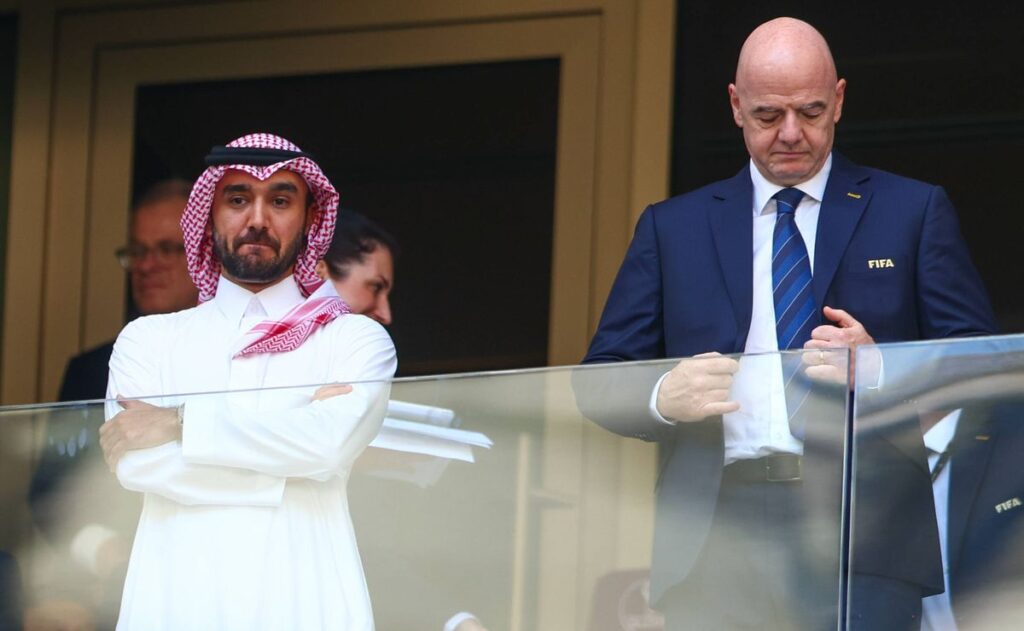Twelve Saudi soccer fans will be sentenced to six months to one year in prison for chanting religious songs during a Saudi First Division match. Police questioned and investigated more than 150 people in the days following the match.
Police charged all 12 with “undermining public order in a spirit of sectarian intolerance by disseminating sectarian content in public gatherings and inciting social conflict.” Another charge against two of the defendants was “using the Internet or electronic devices to transmit anything likely to harm public order.”
Saudi police arrested the fan after a video of his supporters chanting Shiite religious songs went viral on social media. Fans were reportedly celebrating Imam Ali's birthday. The Shiites recognize him as the first caliph, and in Islamic culture he is the second caliph after Muhammad.
Saudi Arabia was the only bidder for the rights to host the 2034 World Cup and the only country to submit a bid before FIFA's deadline.
Saudi court decision criticized by press
The 12 fans could face up to five years in prison and fines of up to $800,000. This is due to Saudi Arabia's widely criticized cybercrime law.
Many people report that the imprisonment of Shia soccer fans is one of the injustices part of the Saudi government's long-standing oppression of Shia Muslims. In the strictly Sunni state, Shiites have suffered economic neglect, exclusion from certain jobs, and repression.
Despite recent reforms by Crown Prince Mohammed bin Salman, many Shiites continue to face discrimination from the majority Sunni population.
Amnesty International Director Heba Molayev said in a statement: “The arrests of these soccer fans are a massive attack on freedom of expression as Saudi authorities spend billions of dollars globally on sportswashing and image laundering. “This is the latest blatant example of repression.” “In this case, a religious minority group was exercising its right to express its religious folklore.”
Imprisonment poses problems for World Cup bid
Sources say FIFA president Gianni Infantino played a key role in selecting Saudi Arabia to host the World Cup. He limited bids to Asia and Oceania and moved the deadline forward by three years. This has made it difficult for interested countries such as Australia to prepare funds and submit bids within the deadline.
In addition to issues of sportswashing and suspicious migrant worker deaths, Saudi Arabia's World Cup bid raises many questions. It raises the issue of unrestrained free speech. It's also a dangerous environment for visiting fans.
“Soccer fans around the world should pay close attention to the outcome of this lawsuit,” Molaev said in an official statement. “Saudi authorities must ensure that people can express themselves freely without fear of repression or reprisal.”
Depending on FIFA's response, Saudi Arabia's ability to get away with human rights abuses could be significantly enhanced. The Saudi Football Federation and Infantino have very close ties, both in business and friendship. Lives could be ruined or even lost at the 2034 World Cup if Saudi Arabia gains the luxury of continuing to impose stiff prison sentences for things that go against the government's consent.

